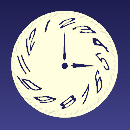

Circadian Sleep Disorders Network submitted comments to the FDA (U.S. Food and Drug Administration) docket (collection of comments) on narcolepsy patient-focused drug development. We said:
THIS IS NOT ONLY ABOUT NARCOLEPSY. Many other sleep disorders have symptoms similar to narcolepsy. Many people with sleep disorders have multiple causes for their sleep issues, and are often diagnosed with several different disorders. In some disorders, for example delayed sleep phase disorder, there may be different underlying causes in different people. Also, people who are sleep deprived due to another disorder may be incorrectly diagnosed as having narcolepsy. And, of course, different medications work differently for different people.
All these reasons argue for having as many different treatment options as possible for these disorders. This includes medications to improve quality of sleep and sleep architecture, adjust timing of sleep and other circadian variables, and improve alertness and function when awake.
Medications need to be tested on patients with different underlying causes for their sleep dysfunction, and results categorized according to those underlying causes. This is needed because a medication may be effective for one underlying cause, but not for another.
Results need to document long term subjective improvements, not just improvements in related biomarkers. In the case of circadian disorders, this means to ascertain patient well-being, not just a change in dim light melatonin onset (DLMO). For a hypothetical narcolepsy drug, this means documenting an improvement in patient alertness, not just a change in hypocretin levels. It is also necessary to demonstrate that the desired effect persists in the long run.
CIRCADIAN SLEEP DISORDERS NETWORK (circadiansleepdisorders.org) believes that there is considerable overlap in some of the symptoms and potential drug treatments between circadian disorders and narcolepsy, and that research and development to aid narcolepsy will benefit circadian disorders as well.
There are an estimated 500,000 American adults suffering from Delayed Sleep Phase Syndrome (DSPS), and many more teenagers. Another 75,000, mostly blind, suffer from Non-24-Hour Sleep-Wake Disorder (Non-24).
For many of them, today's treatments for DSPS and Non-24 are only partially effective or not effective at all. The resulting sleep deficit severely inhibits critical cognitive functions and compromises education, employment, and personal lives. Many of these people are unable to work on a normal daytime schedule, and many cannot find jobs that can accommodate their unusual schedules. This is a particular problem for Non-24, since their schedule is not constant but varies, often unpredictably. These are people who could be productive citizens if better treatments were available.